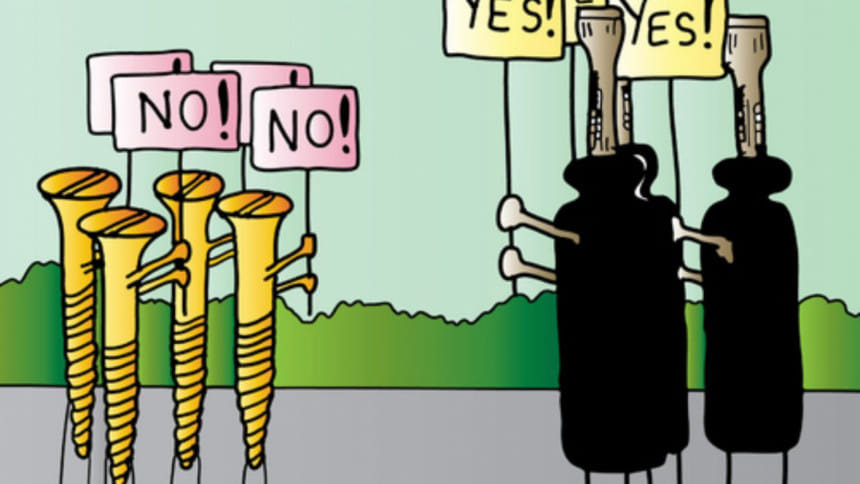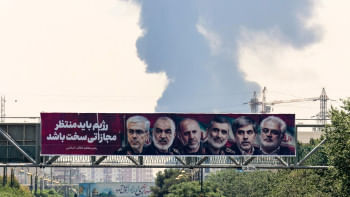Why aren't you talking?

BANGLADESH cricket team's victory against the much-fancied English side in the ICC Cricket World Cup has given the nation an opportunity to unite behind the national team. It is indeed a rare occasion, the kind that is capable of uniting the country behind a single event.
Despite this brief moment of agreement, the present political stalemate that has entered the third month this week shows no sign of subsiding soon. Even though the scale and ferocity of Molotov cocktail attacks on public transport, it seems, have abated a little, there are reasons to believe that the situation might flare up again sooner rather than later.
There are reasons for us to feel pessimistic. The crux of the problem lies in the animosity that both the ruling Awami League (AL) and the BNP have towards each other. Bangladesh's two major political parties indeed suffer from a lack of trust, which is one of the reasons why the caretaker government system was introduced in the first place.
Three free and fair general elections have taken place since it was incorporated into the constitution in 1996; and given the acrimonious relationship between both the parties, it is not at all surprising that the BNP refuses to participate in the election while the AL remains in power. And it would have been the other way round too, if the AL was in the opposition and an Election Commission was holding the election, with Khaleda Zia at the helm.
In fact, the Awami League refused to join the polls in 1996; it, along with Jatya Party and Jamaat, boycotted the election under Khaleda and instead launched a turbulent 'non-cooperation movement' that had witnessed the introduction of the caretaker government system a couple of months later. The BNP is following the AL's footsteps closely, and a low scale insurgency-like situation that we have witnessed in the last couple of months might go on.
Unlike what the AL government thinks, the present crisis is not a law and order issue alone. It is a political issue, and it needs to have a political solution. Bangladesh's recent political history tells us that the BNP-Jamaat alliance enjoys the support of around 30% of voters. Disenfranchising such a huge swathe of voters can never bring anything good to the country.
It is indeed surprising that the AL has so far refused to even sit with the BNP to bring a negotiated settlement to the crisis. To make matters even more grievous, the government has put some of the senior leaders of the party in prison on charges that range from torching vehicles to vandalising public and private properties. Given that most of the arrested BNP stalwarts are in their early and late sixties, it is no less than funny that they would be charged with crimes that require a certain level of physical fitness that people in our country at that age do not have.
Befuddling too is the government's refusal to let the BNP hold any public meeting in the capital. Once burnt twice shy; after the Hefajat incident of 2013, the AL may have been afraid of any large opposition gathering in Dhaka. That does not explain why even the small BNP processions are routinely resisted. Are we to believe that the government wants to divest the country of any dissenting voice?
It is also not clear, too, as to why the BNP is continuing with its non-stop blockade and weekday strike that has only been punctuated by the weekends.
It is time that both the AL and BNP create an atmosphere congenial for holding a dialogue over the modalities of the next general election. As the party in power, the AL has to take the initial initiative of building confidence, and a primary mediation by a third party can also be considered. For its turn, the BNP has to withdraw the blockade and strike and will have to join the negotiating table.
At this critical juncture in its history, Bangladesh needs to create a national consensus on issues, which, besides the next general election, should incorporate issues related to the country's future. It should be an all-party conference which needs to be participated by the civil society leaders too.
The writer is the Editor of The New Anthem (Tranqubar; Delhi; 2009). He can be contacted at ahmedehussain@gmail

 For all latest news, follow The Daily Star's Google News channel.
For all latest news, follow The Daily Star's Google News channel. 



Comments